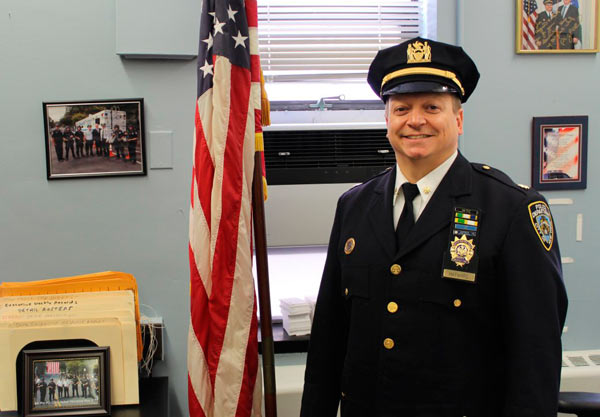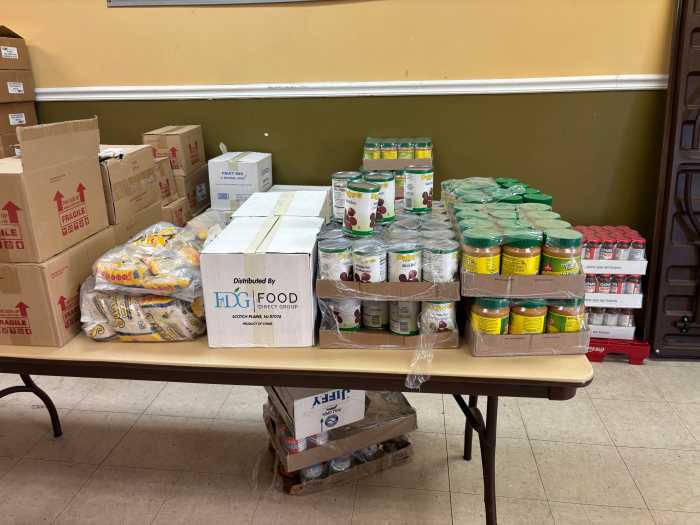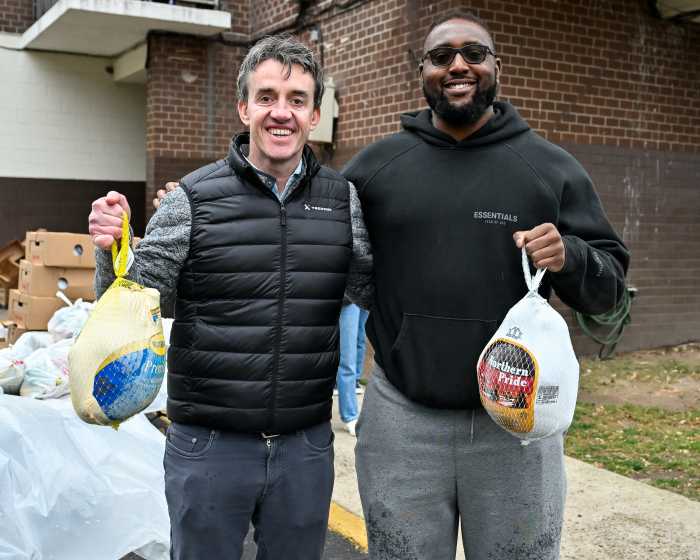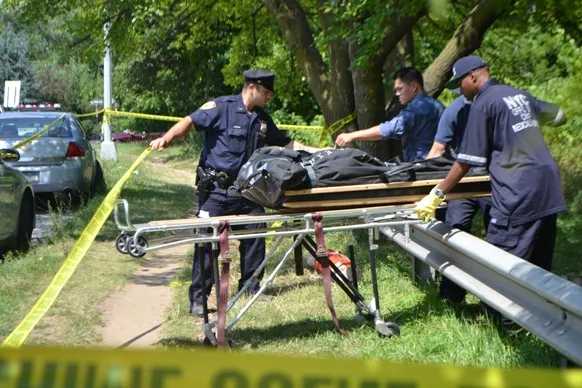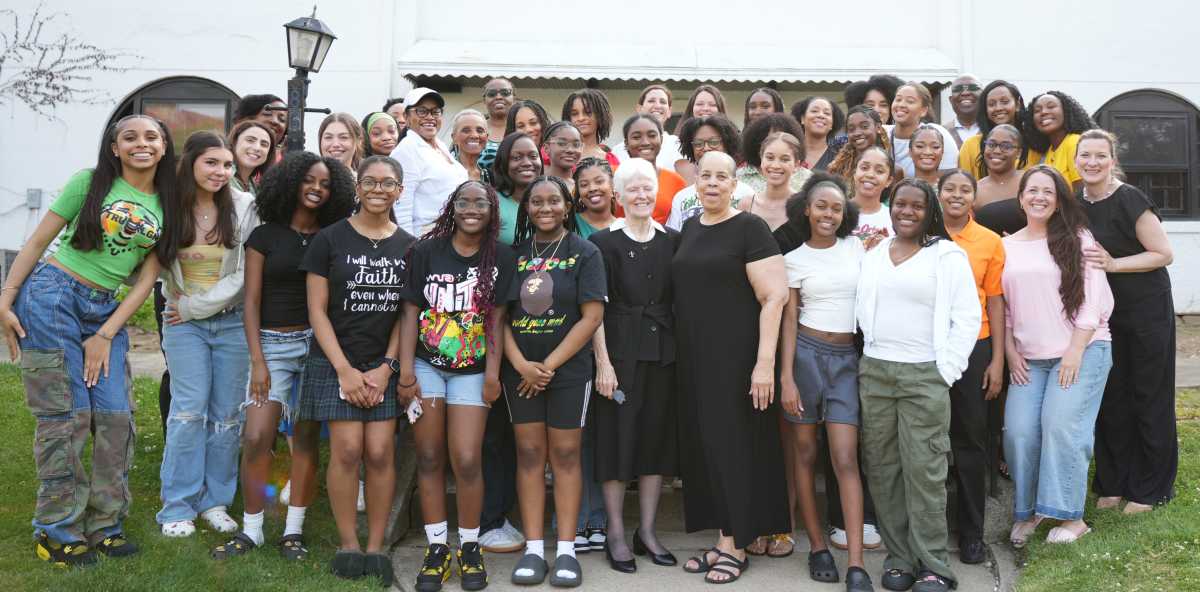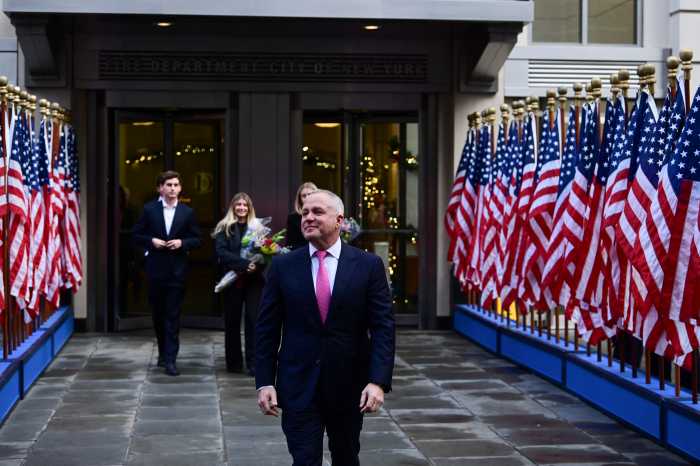Deputy Inspector Joseph Hayward has been the commanding officer of the 60th Precinct for three weeks, but he already has big plans to keep reducing crime in the busy, seaside area. Hayward, who previously headed the 68th Precinct and also worked as the executive officer at the 60th in 2015, wants to tackle the opioid crisis as a means of reducing petty crime. And he doesn’t believe the alleged rape of a suspect committed by two Brooklyn South Narcotics detectives within the precinct is bringing down his officers. We sat down with him to talk about this controversy, the Brooklyn CLEAR program that aims to counsel low-level drug offenders as opposed to locking them up, continuing his predecessor Inspector William Taylor’s success in the precinct, and why he loves being a cop.
Adam Lucente: What’s your day-to-day here?
Joseph Hayward: You come in, review the complaint reports from the day before, which is usually crimes that happened, or petty issues, like lost property and stuff of that nature. Then it’s dealing with personnel issues. It’s constantly changing: people get promoted, people go into detail, people retire. So you’re constantly looking over personnel issues and making sure all the key players in the precinct are the best people to be in those spots.
AL: What are some of the goals you had in mind when you came back here to the 60th?
JH: I’m hoping to continue Inspector Taylor’s good tenure here reducing crime. He had a good deployment strategy of having fixed posts — foot posts in areas of high crime that showed a police presence, especially during the summertime.
AL: Is there anything you think you bring to the table that’s unique?
JH: I feel that in the 68th we had a good deployment versus narcotics, especially opioid addiction and heroin addiction. The 60th is part of the CLEAR program that the 68th is a part of, where first-time offenders and low drug offenders for controlled substances, that’s gonna call them a counselor to try and talk to them and get them affiliated with a rehab facility so that they can get help instead of punishment in jail. I think the 68th had a very successful strategy towards combatting drug use and narcotics use which led to petty crime. I feel if we get a hold on that, it stops the petty crime in the neighborhoods such as car break-ins and stuff like that.
AL: What direction would you say crime is trending in the 60th?
JH: We’re not really getting a spike in violent crimes. Seems like we’re having crimes towards grand larcenies and petty larcenies, of people leaving valuables in cars and cars getting broken into, which I feel we could help. We gotta get the message out there and educate people not to leave their stuff in cars.
AL: The last thing I wanted to ask was about the trial of the two detectives who allegedly raped a woman in their custody in this area. Did that have any effect on morale here?
JH: Nah, I don’t really know too much about that. They weren’t 60th Precinct cops, they were from outside.
AL: Do you think the 60th has been unfairly lumped in with them because they weren’t 60th Precinct officers?
JH: Nah. You’re the first person to bring that up. Nobody’s really brought that up since I got here.
AL: Do you think that’s a problem that’s pervasive in the police force, having sex with people in custody?
JH: Nah. I think the punishment would be very severe if anybody was to do that.
AL: Why have you stayed a career police officer as opposed to moving on to something else?
JH: I love this job. I think anybody who takes the test to become a police officer, you’re really looking to get a job where you can help people. And what better way than day after day to go to a job where people call for help and you can actually go to their houses, or their places of employment, and actually help them?


